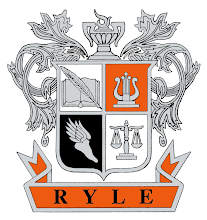by Leanne Italie, Associated Press Parents held responsible for underage drinking
NEW YORK (AP) — Parents of teens: If you think a drinking disaster at your kid's party can't happen at your house, not with your kid, because he's a good kid, it's time to wake up and smell the whiskey bottle tossed on your lawn.
Because of the high risk of underage drinking and driving this time of year, many parents open their homes to partying teens as a way to keep them off the roads. What some may not know is that liability laws can leave Mom and Dad vulnerable to lawsuits, fines and even jail time if underage drinking is found to be going on under their roof.
Parents can get in trouble even if they didn't know about the drinking.
That's what a Menlo Park, Calif., father says he is up against.
Bill Burnett, a Stanford University professor, was arrested the night after Thanksgiving over a basement party thrown by his 17-year-old son to celebrate a big high school football win.
Burnett said he and his wife had forbidden alcohol at the party and were upstairs at the time police received a call about possible drinking by minors. In fact, he said, he had twice made his way to the basement to check on the merry-making.
He spent a night in jail and was booked on 44 counts of suspicion of contributing to the delinquency of a minor. Each misdemeanor count carries up to a $2,500 fine and nearly a year in jail.
Burnett questioned the deterrent value of laws that hold parents legally responsible even if they didn't know there was alcohol at the party.
"In this case I think arresting a parent isn't going to prevent kids from drinking," he said on the "Today" show.
Eight states have specific "social host" laws that say parents can get in trouble if underage guests are drinking, even if no one gets hurt, according to the National Institutes of Health. (Some of those states allow parents to serve alcohol to their own children in some situations.)
Sixteen other states have laws that hold Mom and Dad legally responsible for underage drinking under certain circumstances — for example, if a teen who drank at their home got into a car accident, NIH said. In other states, parents can get in trouble under more general liability laws.
Stephen Wallace, a senior adviser at Students Against Destructive Decisions, or SADD, which used to be called Students Against Drunk Driving, said that with an increased awareness of the dangers of underage drinking, law enforcement authorities are increasingly relying on social host liability laws to go after parents.
While he acknowledged that teens are adept at finding ways to drink on the sly, he said he is all for anything that gets at the problem of underage drinking. He said he finds it troubling that the Burnetts said they saw no alcohol consumed at their party.
"Parents need to say to kids, 'You shouldn't be drinking at all and you certainly can't do it here because we can be put in jail,'" Wallace said.
According to SADD research co-sponsored by the insurance company Liberty Mutual, more teens are saying that their parents allow them to go to parties where alcohol is being served — 41 percent in 2011, compared with 36 percent two years ago. Also, 57 percent of high school students whose parents allow them to drink at home said they prefer to drink elsewhere with their friends, Wallace said.
At some parties, the parents themselves supply the booze. In other cases, the kids bring it, sometimes with the hosts' knowledge.
"Some parents feel helpless," said David Singer of Demarest, N.J., who has 17-year-old twin daughters and a 20-year-old son in college. "Some parents feel they need to look the other way in order to help their kids fit in with the cool crowd. And some parents believe, 'It's better under my roof than who-knows-where.'"
Like Burnett, Singer said he doesn't condone drinking by his underage kids under any circumstances. And yet he found a whiskey bottle in the yard after a party thrown by his son.
Burnett acknowledged he made a mistake but said he doesn't believe police crackdowns like the one at his house do much good.
"All of this is probably going to go underground and result in a more dangerous situation for kids," he told the online news network Patch. "I really don't think it's up to the police to help me parent."
Copyright © 2011 The Associated Press. All rights reserved.


















